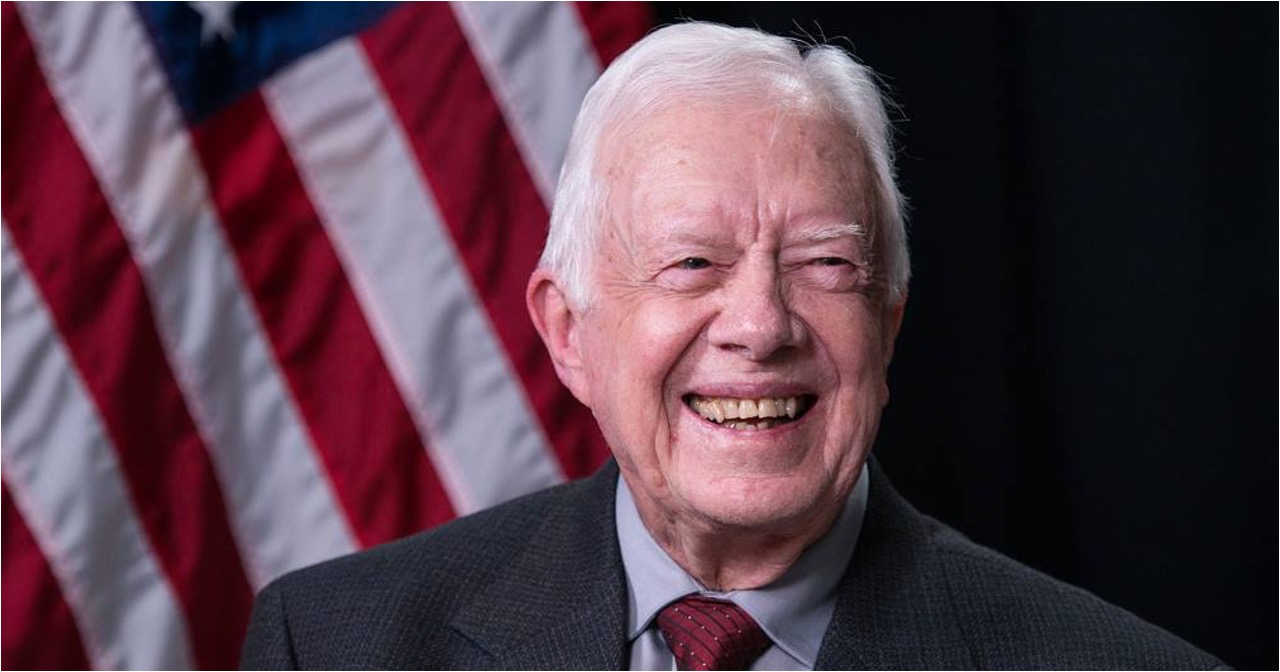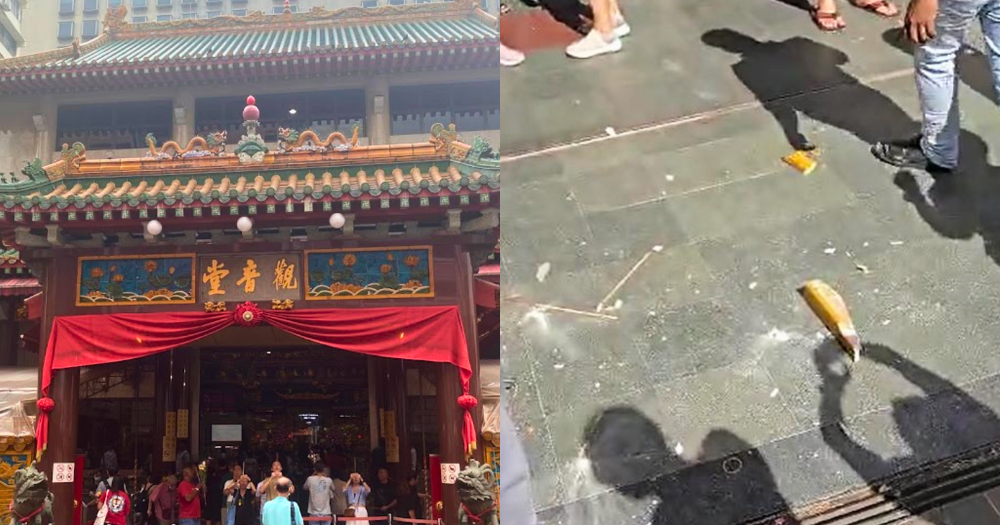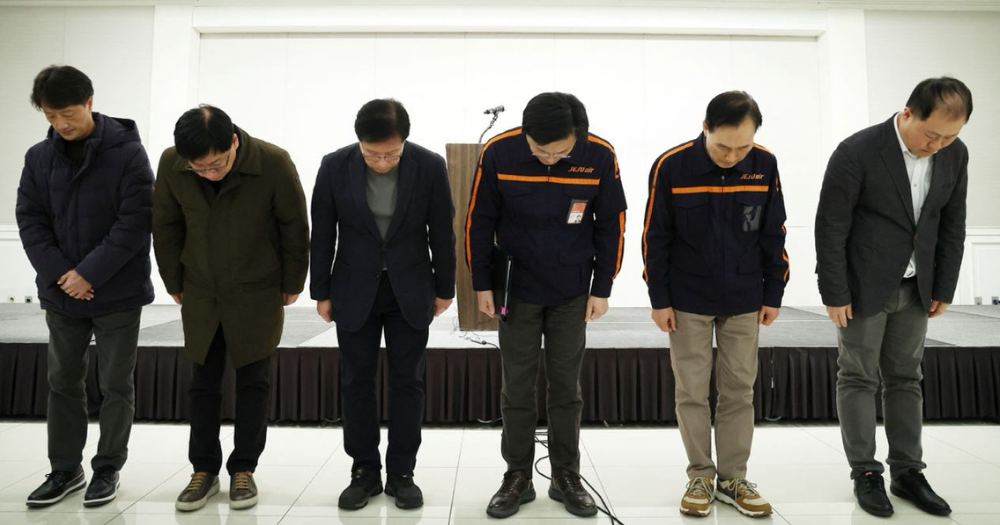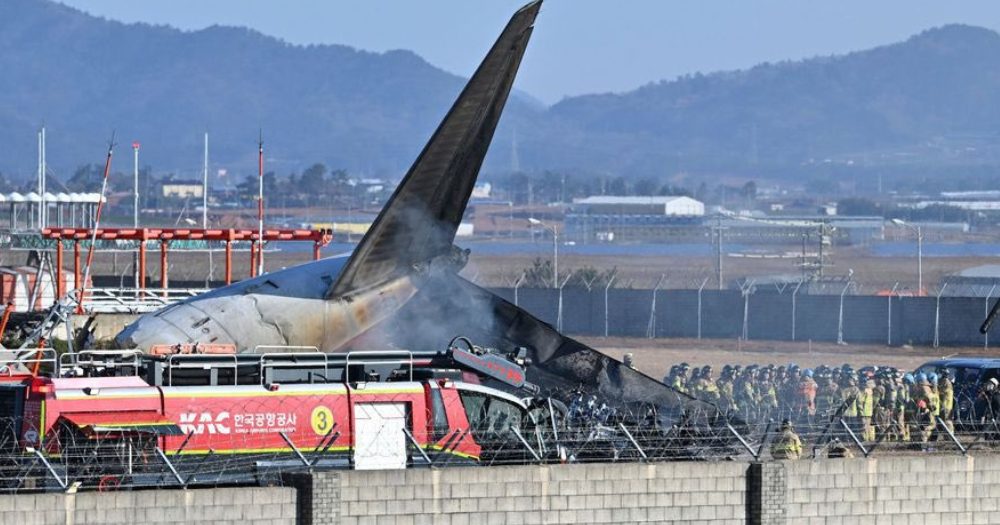Jimmy Carter, 39th US President, dies at 100
Tributes poured in for a statesman and humanitarian.

James Earl Carter Jr., known as "Jimmy", the 39th President of the United States of America, died on Dec. 29, 2024 (U.S. time). He was 100.
U.S. President Joe Biden paid tribute to Carter, saying the world had lost an "extraordinary leader, statesman and humanitarian."
Today, America and the world lost an extraordinary leader, statesman and humanitarian. pic.twitter.com/Ki7Rhbent0
— President Biden (@POTUS) December 29, 2024
The Carter Center released a statement on Dec. 29 (U.S. time) announcing the former president's death and a statement by his son Chip.
"My father was a hero, not only to me but to everyone who believes in peace, human rights, and unselfish love.
My brothers, sister, and I shared him with the rest of the world through these common beliefs. The world is our family because of the way he brought people together, and we thank you for honouring his memory by continuing to live these shared beliefs."
A Georgian farmer
Carter, more commonly known as "Jimmy", was born in 1924 in Plains, Georgia. The son of a prosperous farmer and a nurse, Carter graduated from the U.S. Naval Academy and served in the U.S. Navy as a submarine officer shortly after World War II.
Upon the death of his father, Carter cut short his naval career and returned to Plains to take over the family farm and other businesses. Carter soon became a successful farmer, selling peanuts and fertiliser all over the state of Georgia.
Carter turned his attention to state politics in Georgia in 1962, and was elected as governor of the state in 1970. Carter, although personally opposed to racial discrimination, was well aware that the majority of voters did not share his progressive views.
"I never made a racist statement, but I never did anything to alienate them," Carter said of the white supremacists in his state, speaking to author Jon Ward. Upon winning the election, he said in his inauguration speech that the "time for racial discrimination is over," which resulted in "audible groans" from the audience.
Governor Carter
In his single term as Governor of Georgia, Carter raised his profile by cutting state spending, advocating for civil rights by hiring more black state employees and boosting educational support.
He also courted controversy by hanging the picture of civil rights leader Martin Luther King Jr, who had been assassinated in 1968, in the state capitol building.
This symbolic gesture garnered appreciation from the black community, but angered the Ku Klux Klan in Georgia. However, Carter had his eyes on higher office.
Race for the White House
Despite his success in domestic Georgian politics, Carter initially struggled to make a mark on the national stage.
The nomination for the 1972 presidential election went to liberal, anti-war South Dakota senator George McGovern, who was resoundingly thrashed by the incumbent Richard Nixon.
However, Nixon himself would soon come undone, as the Watergate scandal in 1974 led to his resignation. The national mood seemed right for a man who had emphasised "honesty" in his political career so far. Carter announced his presidential campaign that same year.
Carter's biggest rival for the nomination in the 1976 election was Ted Kennedy, a senator from Massachusetts and the brother of slain Democratic party icons President John F Kennedy and Attorney-General Robert F Kennedy. Due to his national prominence, family connections and wealth, he would be a serious contender had he decided to run.
However, the Chappaquiddick incident of 1969, where Kennedy abandoned the site of a road accident and did not report it to the police immediately, who eventually discovered the body of his aide Mary Jo Kopechne in the car, severely hindered his political chances. Kennedy ultimately chose to sit out the 1976 election.
This left Carter with a relatively clear path, able to portray himself as an "outsider" to Washington, which appealed to the American public still reeling from Watergate. Carter eventually beat President Gerald Ford and became the 39th President of the United States.
President Carter
Carter entered the White House determined to make a mark. He pardoned Vietnam War "draft dodgers", those who refused to be called up to service to fight in Vietnam.
However, as a leader in the more conservative South (both fiscally and socially), Carter was frequently at odds with Congress, even though his own Democratic party had a majority. He publicly opposed so-called "pork barrel" spending, where representatives would include funding for projects in their own districts in order to maintain support from the voters back home.
The worsening economy also dragged on Carter's momentum, as stagflation (high inflation, low economic growth, high unemployment) hit the country.
Carter signed bills designed to cut government spending and also taxes, hoping it would help the economic situation. He also signed the Public Works Employment Act to help boost employment, with special consideration for disabled war veterans and those who served in Vietnam.
Other crises Carter had to deal with were the lingering effects of OPEC's oil embargo due to the Arab-Israeli conflict and the Three Mile Island nuclear accident of 1979, which Carter, as a former navy man working with nuclear submarines, had atypical insight for a president.
Carter proposed a new approach to energy policy in a speech that would come to be known as the "Malaise" speech, although his appeal to personal responsibility did not go down well with the American public.
Carter also backed "human rights" at home and abroad, ending or curtailing U.S. support for authoritarian, anti-Communist regimes in Latin America, returning control of the Panama Canal to Panama, and appointing Andrew Young, the first black U.S. Ambassador to the United Nations.
Camp David and Iran Hostage Crisis
Despite Carter's focus on the home front, foreign affairs would occupy much of his attention. The Camp David Accords of 1978 and the Iranian Revolution of 1979 would come to define his presidency.
The Arab-Israeli conflict had troubled the Middle East and U.S. presidencies for several decades. Carter was determined to reach a comprehensive agreement between Israel and the Arab countries following the "Six-Day War" of 1967, and work continued through much of his presidency.
The talks gradually developed into the pursuit of a bilateral deal between Egypt and Israel, who had fought each other in the war and also the 1973 "Yom Kippur War". President Anwar Sadat of Egypt and Prime Minister Menachem Begin of Israel were hosted at Camp David in the U.S. by Carter.
After intense negotiations, Sadat, Begin and Carter emerged from Camp David with the framework of a peace deal, which eventually led to a formal peace treaty in March 1979.
Sadat and Begin would receive the Nobel Peace Prize, and Carter himself regarded it as one of his most significant achievements while in office.
But while Camp David represented a high-water mark, the Iranian revolution would represent his most prominent failure.
Carter had allowed the much-reviled Shah of Iran to enter the U.S. to receive medical treatment for cancer. He had also visited Iran as a guest of the Shah in 1977, where he proclaimed it an "island of stability" in his speech.
However, Carter and his team underestimated the extent to which the Shah and his brutal secret police force were hated in Iran. Revolutionaries overthrew his regime in 1979 and took hostage several Americans who were working at the U.S. embassy in Tehran. The events would later be depicted in the Hollywood film, "Argo."
Carter authorised a military operation to rescue the hostages, but Operation Eagle Claw ended in failure after sand storms hit the helicopters used, causing one to crash. This only added to public discontent over the Iran hostage crisis.
Defeat to Ronald Reagan
Carter's domestic and foreign troubles led to his defeat in the 1980 presidential election to the Republican Ronald Reagan, former actor and Governor of California.
The campaign would go down in American political history with a debate between the two and Reagan's quote, "There you go again", admonishing Carter for harping on his record on Medicare and Social Security benefits, and his call on the American public, "Are you better off now than you were four years ago?"
Reagan would romp to victory in a landslide, with Carter only winning a handful of states, including his home state of Georgia.
Carter worked on negotiations with the Iranians to free the remaining hostages right up till the moment of Reagan's inauguration, with a deal being announced only after Reagan took office in January 1981.
Post-presidency
After his one-term presidency, Carter continued his work to help the poor and underprivileged around the world, famously building houses for Habitat for Humanity and working as an election observer in Asia, Latin America and Africa through his Carter Center.
Carter also led a campaign to eradicate guinea worm disease, a painful affliction that affects those living in rural African and Asian areas. In 1986, when Carter started, the disease affected 3.5 million people. In 2023, there were 14 provisional cases in humans.
Carter himself won the Nobel Peace Prize in 2002, for his efforts to reduce conflict throughout the world.
Carter's wife Rosalynn, who had been by his side throughout his political career, died in 2023.
Most recently, Carter endorsed Kamala Harris for the 2024 presidential election, who lost to Donald Trump.
Top image from President Carter Facebook.
MORE STORIES




















